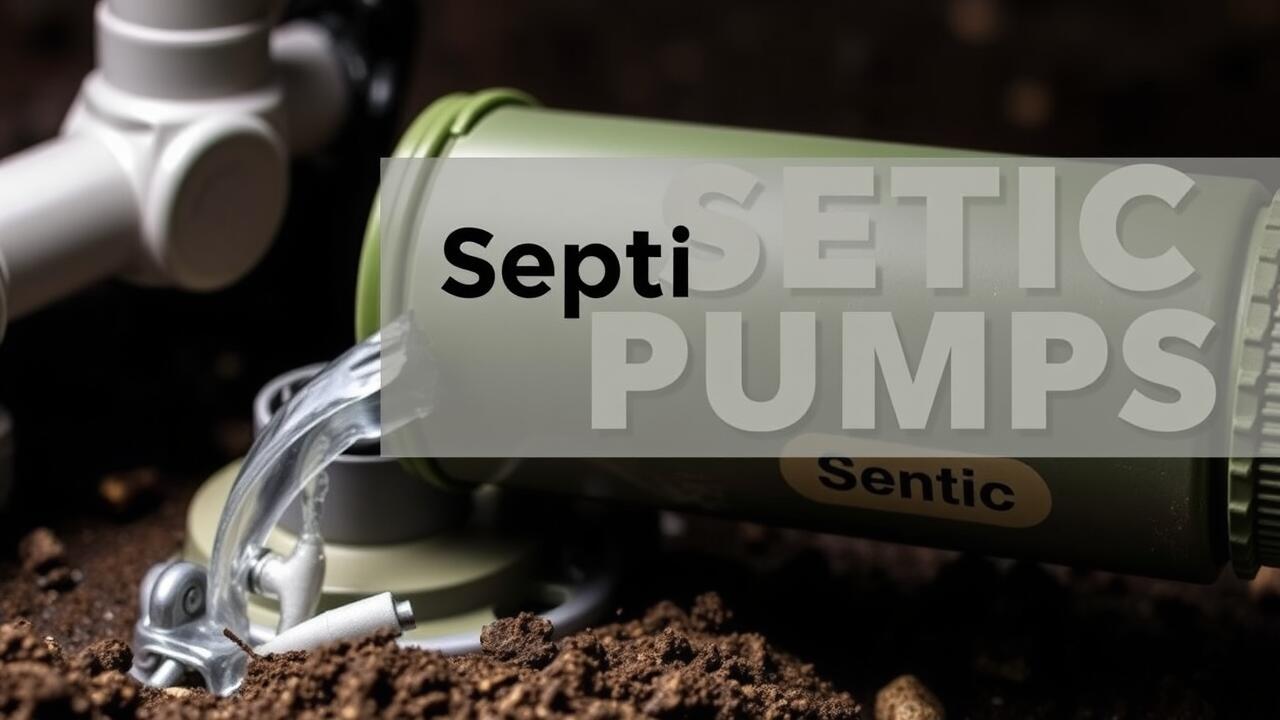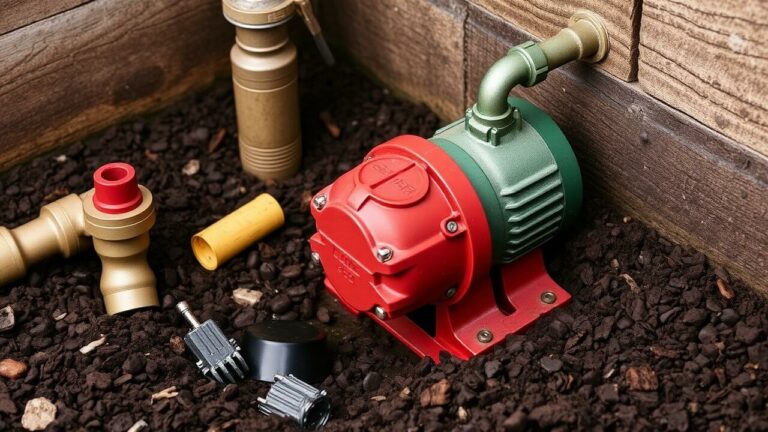How Long Between Septic Pumping
Ignoring the crucial task of regular septic pumping can unleash a cascade of dire consequences, both for unsuspecting homeowners and the delicate tapestry of our environment. Picture this: solids gradually mount up in the tank, creating a ticking time bomb that eventually erupts into messy backups. Suddenly, you’re grappling with foul odors wafting through your home, water gushing where it shouldn’t be – chaos reigns! Daily routines are disrupted, and before you know it, you’re faced with exorbitant repair bills or even an entire system replacement – a financial blow that could leave anyone reeling.
But wait; there’s more! The mishandling of wastewater doesn’t just spell trouble at home; it casts a shadow over our surroundings too. When a septic system goes awry, untreated sewage has the audacity to infiltrate our precious earth, tainting soil and putting nearby waterways at risk. This isn’t mere inconvenience; it’s a genuine health threat looming over local communities and ecosystems alike. Henceforth, adhering to those all-important maintenance schedules for septic systems becomes not just wise but absolutely essential for safeguarding both your household and the world beyond your doorstep.
Potential Environmental Hazards
Ignoring the essential task of pumping your septic system can unleash a cascade of environmental disasters. Picture this: waste piling up, teetering on the brink of overflow, and before you know it—untreated sewage oozes into the nearby soil and waterways. The repercussions? Catastrophic! This contamination wreaks havoc on local ecosystems, sending shockwaves through flora and fauna alike, throwing natural habitats into disarray. And let’s not forget about those insidious pathogens and chemicals leaching away, threatening to sully groundwater quality—a dire concern for communities relying on well water.
But wait—there’s more! Beyond the immediate ecological turmoil lurk long-term ramifications that could jeopardize public health and safety. Contaminated water supplies become breeding grounds for waterborne diseases, potentially igniting health crises with alarming speed. To add insult to injury, property values in areas plagued by septic failures may plummet as whispers of environmental woes spread like wildfire. It becomes crystal clear: maintaining these systems isn’t just an individual responsibility; it’s a collective necessity aimed at safeguarding our communities and preserving the environment from such perilous fallout.
Professional Pumping Services
When you engage a professional septic pumping service, you’re not just hiring someone to do a job; you’re ensuring that the task is executed with precision and efficiency. These skilled technicians come equipped with both the know-how and the right tools to dive deep into your system’s unique requirements. They possess an uncanny ability to spot potential problems lurking beneath the surface before they spiral out of control—this foresight can drastically reduce long-term costs and headaches down the line. Regular inspections and maintenance carried out by these experts are essential for keeping your septic system running smoothly, safeguarding your investment for many years ahead.
Choosing a reputable septic pumping service isn’t merely important; it’s pivotal if you want to achieve stellar results. Dive into reviews, cast a wide net in your research, and look for companies that have built solid reputations on their proven track records. Don’t overlook the importance of confirming that any contractor you consider is licensed and insured—this adds an invaluable layer of protection as well as peace of mind while navigating this intricate process. A reliable professional will also provide tailored advice on maintenance schedules crafted specifically for your system’s needs, paving the way for enhanced longevity and effectiveness in its operation.
Choosing a Qualified Septic Contractor
Choosing the right septic contractor—oh, what a pivotal decision! It’s not merely a task; it’s an expedition into the realm of efficient service and durability that lasts. Where to begin? Dive into research, your compass pointing towards local firms boasting solid reputations in the community. Scrutinize reviews and testimonials like a detective on a case, unearthing insights about past clients’ experiences with their work quality.
Don’t forget to confirm that your chosen contractor possesses all necessary licenses and insurance. This isn’t just red tape; it signifies adherence to local regulations while also shielding you from potential liabilities lurking in shadows unknown.
But wait—let’s talk experience! A seasoned contractor is worth their weight in gold—they’ve weathered challenges before and emerged victorious, ready to offer dependable solutions when you need them most. Inquire about the types of equipment they wield; modern technology can be transformative, ushering in better efficiency and minimizing environmental footprints along the way.
And here’s where strategy comes into play: gather multiple estimates! This isn’t just for comparison—it’s your magnifying glass revealing services offered or perhaps even raising those concerning red flags. Ultimately, seek out a contractor who communicates clearly—a beacon of understanding who responds thoughtfully to your inquiries. Your septic system deserves nothing less than meticulous attention and expertise!
| Contractor Name | Years of Experience | Licenses & Insurance | Customer Rating | Service Area |
|---|---|---|---|---|
| Clear Water Solutions | 15 | Yes | 4.8/5 | Local |
| Septic Pro Services | 10 | Yes | 4.5/5 | Countywide |
| Eco-Drain Contractors | 20 | Yes | 4.9/5 | Regional |
| Reliable Septics | 8 | Yes | 4.6/5 | Metro Area |
DIY Maintenance Tips
Nurturing a septic system through diligent inspections and conscientious practices can remarkably bolster its lifespan. Homeowners ought to immerse themselves in the fundamental elements of their septic setup. Regularly scanning for telltale signs—those pesky leaks, waterlogged soil, or sluggish drainage—can be pivotal in catching potential troubles before they escalate. Employing a toilet tank additive? A wise move! It helps dismantle solids, ensuring everything flows seamlessly along.
Moreover, maintaining meticulous records of pumping and upkeep serves as your trusty logbook, chronicling the system’s well-being over time—it’s like an annual check-up for your plumbing!
But wait—regular maintenance extends beyond just monitoring; it demands thoughtful engagement with household products too. Flushing non-biodegradable offenders like wipes and feminine hygiene items? A big no-no—they’re the culprits behind costly clogs that could haunt you later on! And those harsh chemicals lurking under your sink? Tread lightly; they threaten to upset the delicate bacterial balance crucial for efficient wastewater breakdown.
Oh, and don’t forget about drainage! Divert that runoff away from your drain field while nurturing vegetation above the septic area to ward off root intrusion—a stealthy saboteur leading straight to system failure. By embracing these preventive strategies, you’re not merely prolonging functionality; you’re crafting a robust ecosystem beneath your home while reducing those dreaded surprise repair bills down the line.
Simple Practices for Homeowners
Homeowners can embrace a handful of straightforward yet impactful practices to keep their septic systems running smoothly. Keeping an eye on water usage is key; it’s all about avoiding that dreaded overload. Opting for water-efficient fixtures—think low-flow toilets and showerheads—can dramatically slash the volume of wastewater produced. Plus, dialing back on garbage disposals helps in minimizing solid waste from sneaking into the septic tank, ultimately extending its lifespan.
But wait, there’s more! Routine inspections are absolutely crucial for catching potential problems before they spiral out of control. Homeowners need to be alert for telltale signs like sluggish drains or peculiar odors—those could be red flags signaling a malfunction lurking beneath the surface. And let’s not forget about access: keeping pathways clear to the tank allows professionals to swoop in and carry out necessary pumpings and checks without a hitch. By sticking to these simple yet effective steps, homeowners can play a vital role in preserving their septic systems for years to come!
Local Regulations and Guidelines
Septic system regulations—oh, they can be a real patchwork quilt! Each state or even little ol’ municipality seems to have its own set of rules that can swing wildly from one place to another. In many regions, there are detailed guidelines dictating just how often you need to pump that septic tank of yours. Why? To keep those systems humming along effectively and protect the health of everyone around. Homeowners would do well to dive into their local codes because ignoring them could land you in hot water—think fines, property damage, or worse yet, environmental disasters waiting to happen!
Local health departments and environmental agencies often stand ready with resources galore to help residents navigate the convoluted landscape of septic maintenance requirements. But wait! It’s not just about knowing what’s on the books today; it’s vital for homeowners to stay on top of any regulatory shifts that might rear their heads down the line. Some areas might tighten up their rules as new environmental studies emerge or demographics change like leaves in fall.
Keeping an open line of communication with local authorities isn’t just smart; it’s essential! This proactive approach ensures compliance while also nurturing your septic system’s longevity and efficiency—a win-win situation if ever there was one! So understanding these quirky local regulations is more than a legal necessity; it’s about protecting your financial investment and doing right by our precious ecosystem too.
Understanding State and Municipal Requirements
State and local regulations governing septic systems can be an intricate web, varying dramatically based on factors like population density, soil conditions, and environmental priorities. It’s essential for homeowners to dive into the specific guidelines that dictate how often a septic system must be pumped, what wastewater management practices are acceptable, and the protocols surrounding new installations. Regular inspections are often mandated by authorities to ensure these systems operate effectively while preventing any potential contamination of our precious groundwater.
In numerous locales, obtaining permits is a requisite step before both installing a new septic system or carrying out routine maintenance. These rules are designed with public health in mind while also aiming to protect the environment from harm. Local health departments typically offer resources that clearly outline what’s expected of septic system owners. Following these stipulations not only bolsters safety but also wards off any nasty fines or penalties lurking around due to non-compliance!
Long-Term Cost Benefits of Regular Pumping
Regularly pumping your septic system isn’t just a good idea—it’s a financial lifesaver! Over time, those pesky solids accumulate in the tank like uninvited guests at a party, leading to blockages and messy overflows. And guess what? When that happens, you’re facing some pretty steep repair bills. But fear not! By sticking to a recommended pumping schedule—like clockwork—you can dodge these headaches entirely. This proactive strategy doesn’t just keep your system running smoothly; it also extends the life of your entire septic setup.
Now let’s talk about dollars and cents: investing in routine maintenance is like putting money back in your pocket. Neglected septic systems can spiral into environmental nightmares—think hefty fines and expensive cleanup operations lurking around the corner. Plus, homes with well-cared-for septic systems tend to hold their value much better on the market. A consistent pumping regimen signals responsibility and meticulous care; this makes your property shine in the eyes of potential buyers while boosting long-term financial returns. Who wouldn’t want that?
How Maintenance Can Save You Money
Regular upkeep of a septic system can dramatically slash long-term costs for homeowners—it’s true! When you schedule timely pumping, the chances of encountering system failures plummet, sparing you from those dreaded costly repairs or even the nightmare of having to replace your entire septic setup. Tackling minor hiccups right away stops them from ballooning into major headaches that could drain your wallet.
Moreover, shelling out for routine inspections can uncover lurking issues before they spiral out of control. A well-cared-for system runs like a dream, which means lower utility bills in your future! Plus, many municipalities are sweetening the deal with incentives or rebates for those diligent homeowners who stick to proper septic maintenance practices—what a way to boost savings over time!
- Regular maintenance can extend the lifespan of your septic system.
- Routine inspections can identify potential issues before they become expensive problems.
- Proper upkeep minimizes the risk of sewage backup, which can lead to costly damages.
- Timely pumping helps maintain proper function and prevents overflows.
- Maintaining a septic system can increase property value when it comes time to sell.
- Some local governments offer financial incentives for homeowners who maintain their systems.
- An efficiently running system can lead to reduced water and energy expenses.
Conclusion
Ah, the intricate dance of septic system maintenance—an essential ritual cloaked in the mundane yet bursting with significance! Timely pumping isn’t merely a chore; it’s a lifeline to both longevity and efficiency for your precious system. Picture this: homeowners who diligently follow recommended schedules aren’t just safeguarding their property; they’re champions of environmental stewardship, guardians against the lurking perils of neglect.
Oh, but let’s not forget that turning a blind eye can spiral into a cascade of costly repairs and health hazards! It paints quite the picture—a vivid reminder that vigilance is paramount in the realm of septic care.
Now, consider this: investing in professional pumping services paired with an astute understanding of local regulations can amplify those benefits manifold. A proactive approach allows homeowners to sidestep significant expenses tied to catastrophic failures while dancing gracefully within municipal guidelines. In essence, maintaining your septic system transcends mere obligation; it morphs into an imperative facet of responsible homeownership—one that unfurls dual rewards for both wallet and planet alike!






